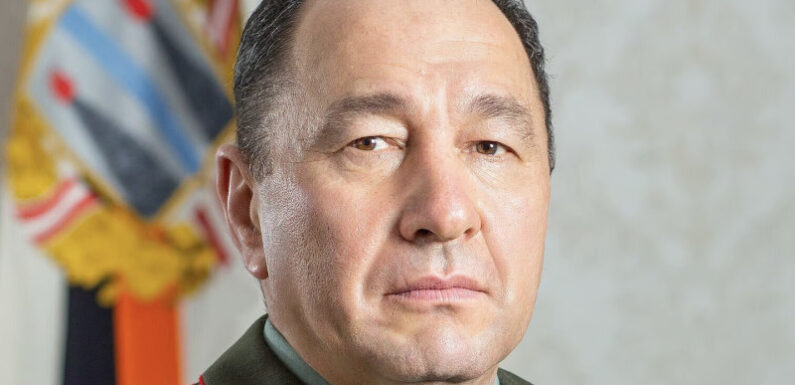
Save articles for later
Add articles to your saved list and come back to them any time.
A decorated Russian commander who was axed by the Kremlin after overseeing humiliating army retreats in Ukraine has died, the second such general to die in unspecified circumstances this week.
Russian Colonel General Gennady Zhidko died after a “long illness”, Kremlin-loyalist and regional governor Mikhail Degtyarev announced on Wednesday, almost one year after Zhidko was removed from senior military roles.
A former deputy defence minister who was declared “a Hero of Russia” by the Kremlin in 2017, Zhidko was named overall theatre commander and eastern military district commander, leading Russian troops in Kyiv between May and October last year, before his ousting after multiple setbacks.
Former Russian general Gennady Zhidko has died in Russia after being axed following setbacks in battles.
There has been no official statement on the general’s death by Russian military authorities. Some state media reports have suggested Zhidko was battling cancer, while detractors have fuelled speculation of poisoning.
Announcing Zhidko’s death on Telegram, Degtyarev described him as “very attentive to the needs of a simple soldier”.
“It is these commanders who are called commanders,” an English translation of the post said.
Independent Russian media outlet Mediazona, which has kept a running tally of deaths through the course of the war, suggested Zhidko was the seventh general to die since the war began in February last year.
The 57-year-old earned notoriety in Russia for his role leading forces in Syria, where his alleged willingness for brutality reportedly earned him the moniker “the butcher”.
Independent Washington think tank, the Institute for the Study of War, in April said Zhidko was overseeing a number of operational direction commanders last year in an attempt to organise Russia’s offensive in eastern Ukraine.
His promotion earned him sanctions by the US State Department, with his name added to a list of 11 people identified as “key members of Russia’s defence enterprise”.
Zhidko had been promoted to replace Army General Alexander Dvornikov, who had failed to achieve “[Vladimir] Putin’s high expectations in the first months following the retreat from Kyiv,” the institute wrote in an April briefing.
Colonel General Alexander Dvornikov, pictured with Russian President Vladimir Putin in 2016, was in charge of Moscow’s war in Ukraine for seven weeks before being dumped.Credit: AP
“Zhidko likely inherited Dvornikov’s task of formalising Russian command structures in Ukraine and sought to introduce operational groupings of forces in an effort to succeed in the task that likely contributed to Dvornikov’s dismissal.”
However, he was ultimately removed from the role “for failures during military operations,” the BBC Russia reported. Zhidko was replaced by Sergey Surovikin, who himself is said to be under house arrest over his close links to Yevgeny Prigozhin, chief of the Wagner mercenary group.
English translations of posts by an independent Russian Telegram channel earlier this week said Surovikin “cannot leave his home, but the other day he was allowed to see several subordinates”.
General Sergei Surovikin has close ties to Wagner boss Yevgeny Prigozhin.Credit: AP
Zhidko is the second Russian general to die this week. Radio Free Europe earlier reported Gennady Lopyrev, who was in prison on bribery charges, had died of an unspecified sudden illness.
An ongoing collaboration between Mediazona, BBC and volunteers last month confirmed at least 284 high-ranking Russian officers, of lieutenant colonel rank and higher, had died since Russia’s illegal invasion.
A separate project between Mediazona, Meduza and a data scientist at Tübingen University, Germany, in July suggested nearly 50,000 Russian men have died in the war, while other estimates put the figure as high as 60,000 to 70,000 in the first year of the conflict.
The analysis by the media outlets probed Russian government inheritance records and official mortality data to apply a statistical method used widely during the COVID-19 pandemic to compute excess mortality.
Get a note direct from our foreign correspondents on what’s making headlines around the world. Sign up for the weekly What in the World newsletter here.
Most Viewed in World
From our partners
Source: Read Full Article


